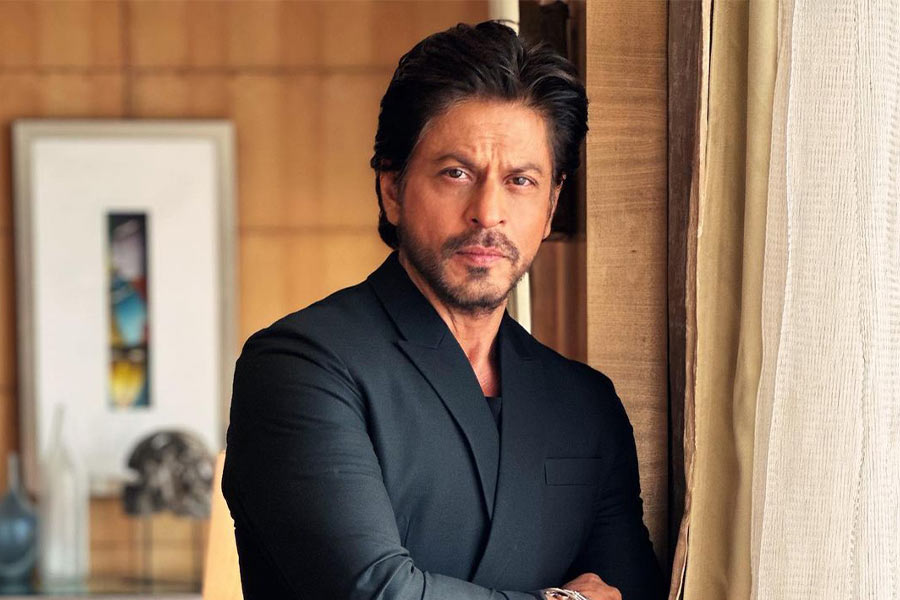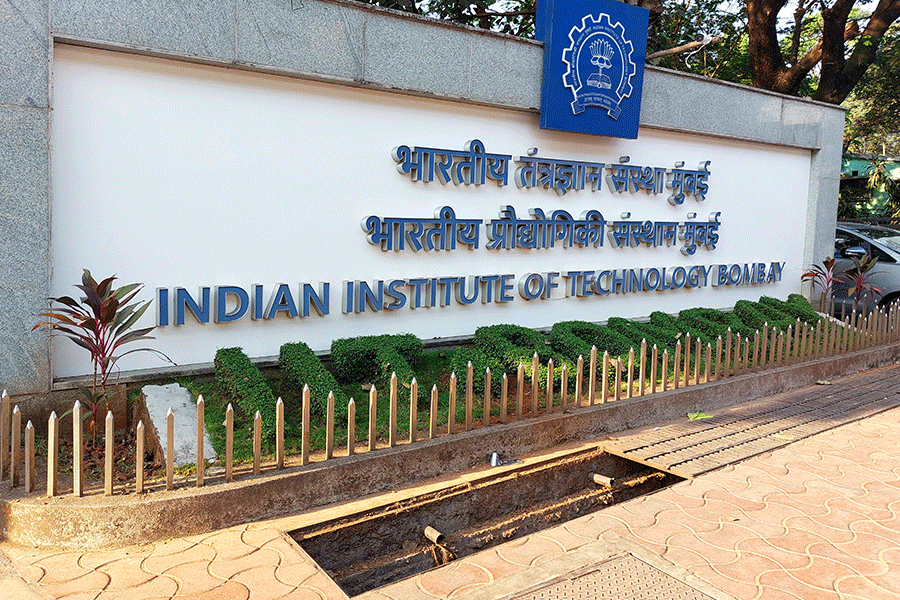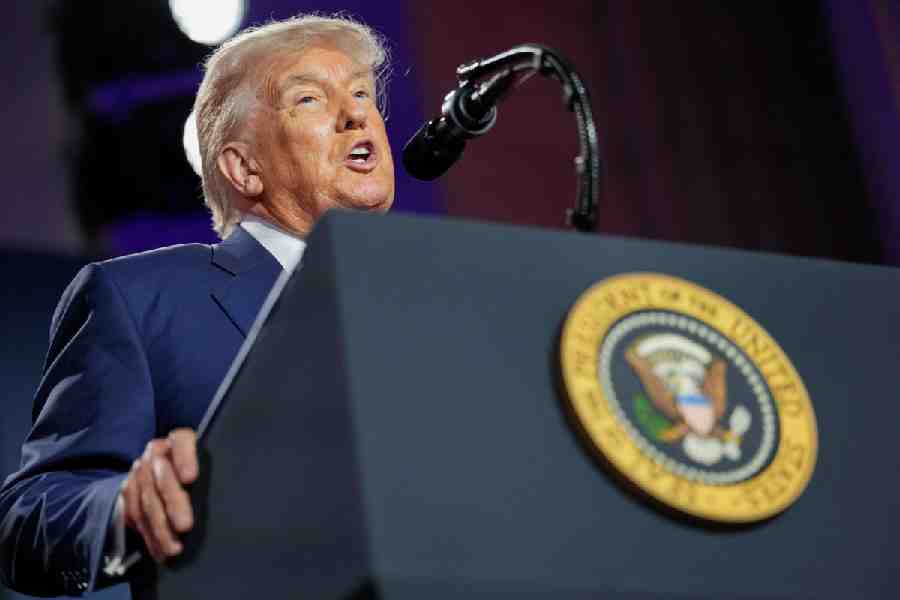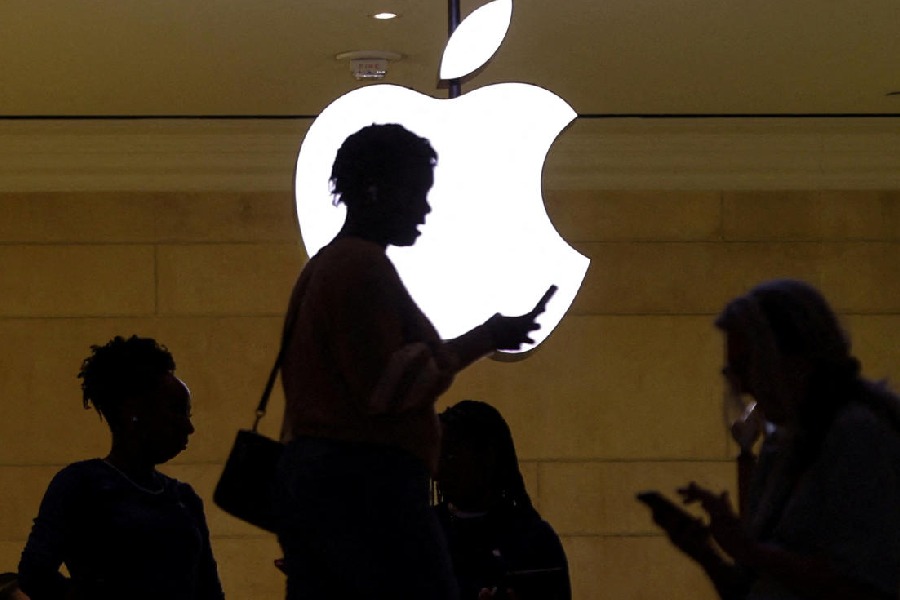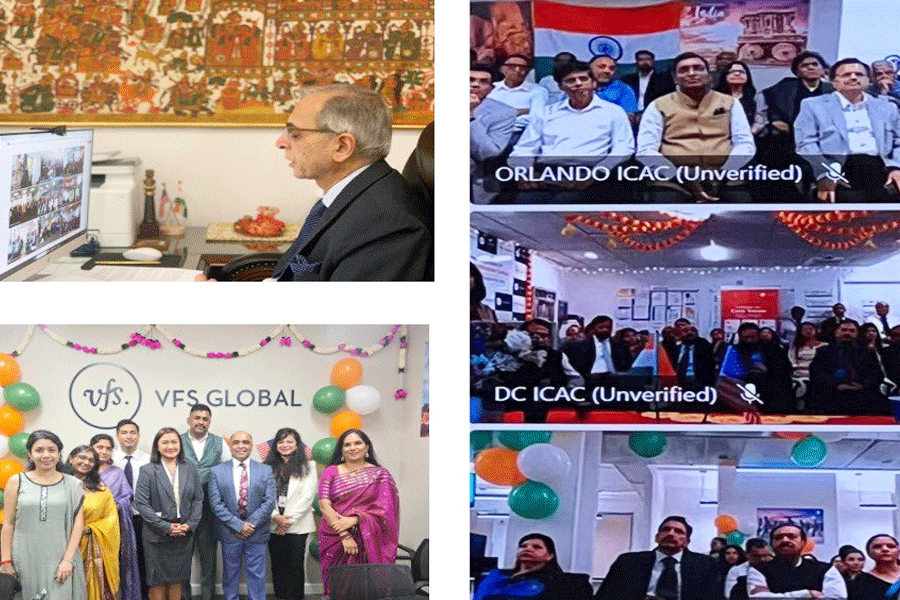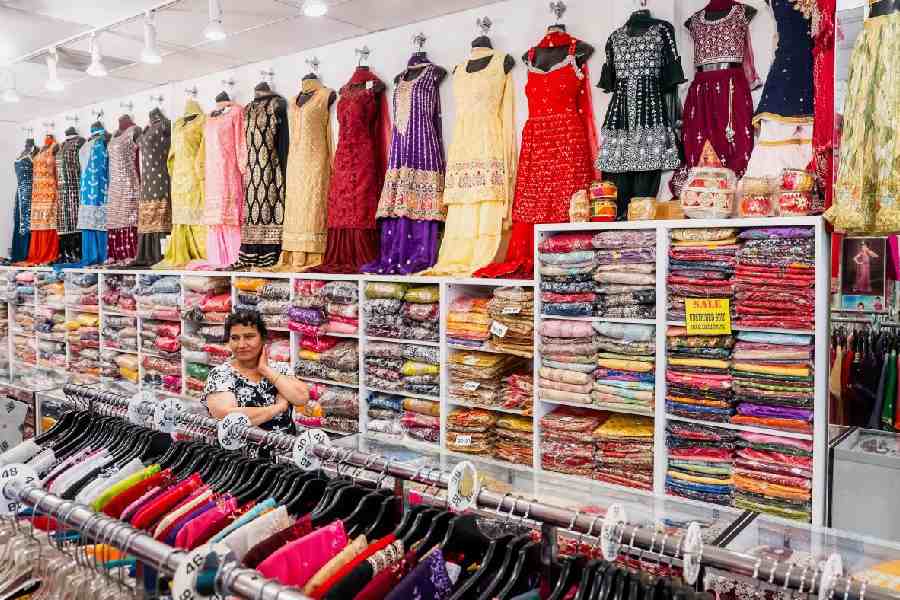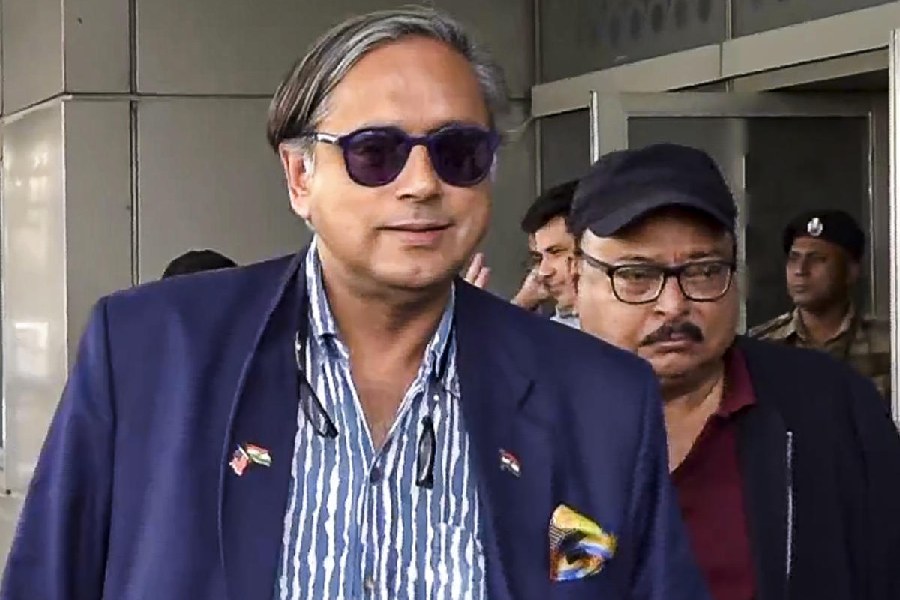 |
Sept. 12: India’s UN ambassador Hardeep Puri was keeping up a tradition when he turned up at the US Open men’s doubles final on Friday with his Pakistani counterpart Abdullah Haroon to cheer the Indo-Pak pair of Rohan Bopanna and Aisam-Ul-Haq Qureshi.
Indians who play sports other than cricket may struggle to find takers at home but in crunch situations on foreign soil, they have usually been able to count on support from a small group of patriots.
The members of the Indian Foreign Service.
They were there on that warm July afternoon in 1993 in Frejus, France, egging Ramesh Krishnan on as he came back from the dead to win the final match of a Davis Cup tie.
They were there to wave the flag in Portugal this summer as Bhaichung Bhutia’s Indian side pitted its skills against European football teams.
“We were happy to see the Indian ambassador at some of our matches. He also invited us to dinner on August 15,” Bhutia told The Telegraph. “Such gestures boost the performance of sportspersons. When you are playing in a foreign land, the presence of people from your own embassy is a great encouragement.”
 |
 |
| (From top) Arjun Atwal and Jeev Milkha Singh |
A serving diplomat said Puri and Haroon had received so much publicity because of the symbolism attached to Friday’s match which, probably for the first time, featured an Indo-Pak “team” in a high-profile event.
“Normally, we do honour Indian sportspersons at our missions abroad if they do well at an international event but that seldom gets this kind of publicity,” the official said.
Away from the limelight — even away from stadiums and TV cameras — the diplomats have done their bit for Indian sport.
T.S. Tirumurti, who was deputy chief of mission at the Jakarta embassy until a few years ago, recalled that when India’s junior badminton team was in Indonesia for training, the embassy walked the extra mile to make the experience worthwhile for the boys and girls.
“Jakarta is the badminton capital of the world,” Tirumurti said. “So the mission made it absolutely certain that our juniors got the best out of the training experience.”
Such effort usually has little to do with protocol or government policy but comes at a personal level, said retired diplomat Arundhati Ghose.
Mere protocol does not explain why India’s deputy high commission in Rajshahi would prepare food and send it to the Indian team at the International Tennis Federation’s annual junior tourney in Bangladesh every year.
Ghose said Puri and Haroon must have decided between themselves to go and cheer for Bopanna and Qureshi rather than it being a decision by the two governments. “That the two of them attended the match together should not be seen in terms of any political signal.”
This personal involvement was in clear evidence 17 years ago in Frejus, where the Davis Cup team achieved one of the most stirring victories in the history of Indian sport.
A retired ambassador who served in Europe in the 1990s recalled that India’s then deputy chief of mission in Paris, Rajiv Sikri, and his wife Veena Sikri, a minister at the embassy, had led a team of Indian diplomats on the stands.
A first secretary at India’s permanent mission to the UN in Geneva had driven down with his entire family. India’s consul-general in Geneva too was at hand to support Krishnan and Leander Paes.
An Indian diplomat who saw the match remembers about 15 Indians, all diplomats and their families, waving outsized Tricolours amid more than 2,000 boisterous French.
When the local media reported their curious presence, it got the attention of the Indian community in France. About 20 Indians who were originally from former French colonies Puducherry and Mahe, and were now citizens of France, turned up for the next day’s matches to support the Indian team.
“We were the ones who drew the Indian community to the stands by our presence,” said one diplomat who insisted that the IFS had a record of supporting any sport in which Indians participate, not just cricket.
Another diplomat, however, conceded that even the IFS had a cricket bias. “It has become nearly customary for Indian missions abroad to organise a dinner for the visiting cricket team,” he said.
But several other IFS officers around the world, who spoke to this newspaper, blamed the media for the excessive publicity cricket received. “It puts pressure on us to be seen with the cricket teams though we may not be interested in cricket and our personal preference may be for tennis or golf,” a senior ambassador said.
Shooter Samresh Jung, winner of five golds in the Melbourne Commonwealth Games, 2006, said he did not remember the Indian high commissioner being present at the shooting range. “The presence of dignitaries helps... it gives a feeling to sportspersons that they have the backing of their country. I know big people often attend cricket matches but I have no complaints,” Jung said.
Former shuttler (now Saina Nehwal’s coach) Gopichand and cueist Yasin Merchant remember Indian envoys watching their moments of glory on foreign soil. Both said it was possible that the envoys found more time for cricketers but insisted, along with Bhutia, that this never bothered them.
One sport that sometimes rivals cricket in the IFS stakes is golf, the sport closest to the hearts of most diplomats everywhere.
“Golf opens doors for practitioners of foreign policy,” conceded one ambassador who plays the sport at least three times a week. “This is a fact that a diplomat can ignore only at his peril.”
K.C. Singh, who was ambassador to the UAE, said the embassy in Abu Dhabi and the consulate-general in Dubai rolled out the red carpet whenever the likes of Arjun Atwal, Jyoti Randhawa and Jeev Milkha Singh were in the Emirates.
He said the Indian diplomats walked along and cheered as these golfers played. “The boat parties along the Dubai waterfront attended by our golfers inevitably drew the creme de la creme of Dubai society.”
Even when it comes to a show of Indo-Pak amity in sport, the Puri-Haroon act hasn’t been the first by the IFS. Two months ago, South Block had coordinated a multinational effort to ensure participation by 40-odd Pakistani children in a regatta in Chennai after they struggled to find tickets for the last leg of their journey, from Colombo.
“Our mission in Colombo got into the act and persuaded Sri Lanka Airline to carry the kids from Pakistan although strictly it was none of their business,” said an Indian high commission official in Islamabad who was involved in the operation.
“Had we done this for the Pakistan cricket team, it would have been on the front page of every newspaper,” a South Block official said. “But who cares about what we do for rowing?”
So, Puri and Haroon had a special reason to be at Flushing Meadows on Friday, Ghose said. They had a message for the world. “It was their way of showing non-South Asians that we are not complete barbarians and do get on well on several fronts,” she said.


